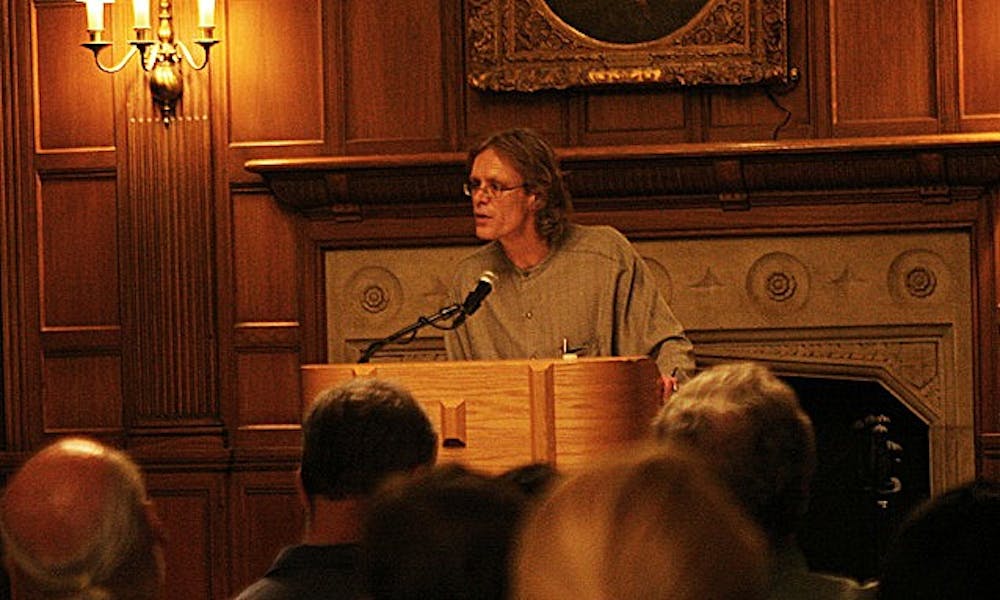Recording the past should primarily serve to question the present and look into the future, archivist Verne Harris said.
Harris, head of the Memory Programme at the Nelson Mandela Foundation’s Centre of Memory and Dialogue, spoke to approximately 30 people in the David M. Rubenstein Rare Book and Manuscript Library Monday evening. Sponsored by Duke Libraries and the John Hope Franklin Humanities Institute, the event focused on what archiving has done for the wounded since apartheid in South Africa and what archiving can do for equality in the future. Harris previously served as the director of the South African History Archive, an independent human rights nongovernmental organization.
“The discourses of modernity too readily assume that constructions of the past are about learning from the mistakes of that past,” Harris said. “Societies, and individuals possibly as well, very much learn not from the past but from the future—what we perceive to be the future opening for us, what we experience as our participation in the making of that future.”
Harris said the function of the Memory Programme is to properly document and secure all relevant historical information in South Africa and, most importantly, make it accessible to South Africa’s people. This will allow South Africans to preserve the memory of Nelson Mandela, the first South African president elected in a full democratic election, Harris added.
South Africa still has a lot of healing to do from the damage of apartheid and its aftermath, he noted.
“South Africa, by most measures, remains one of the most unequal societies on earth,” Harris said. “Liberation has reached too small a population of South Africans.”
Harris mentioned Mandela’s permanent retirement and weakening physical condition, emphasizing the urgency of preserving the memory of Mandela in constructing a future for South Africa.
“How do we learn to live without Nelson Mandela?” Harris said at the event.
Harris said this is a question that has not yet been answered. He spoke about the role of archiving and the Memory Programme in encouraging thoughtful dialogue rather than producing concrete answers to present problems.
Mandela requested that the Memory Programme not depend on him, Harris said, adding that Mandela asked not to be protected or sanctified by the archives.
“People feel that [Mandela] is already gone,” Harris said. “If we look to the future, the past will look after itself.”
Harris’ notion of a folded timeline through archiving struck a chord with Ariel Dorfman, distinguished professor of literature at Duke.
“We are privileged to have an extraordinary library here at Duke,” Dorfman said. “Those who do not know the past well are not only condemned to repeat the mistakes of the past, but they will not befriend it. To befriend the past, in some sense, is to create the future.”
Jennifer Thompson, research services and collection development librarian at the John Hope Franklin Research Center, noted the variety between archives.
“No collection is the same. You have to treat them differently and with different care,” Thompson said, adding that the diversity of archives primarily facilitates informed decision-making for the future.
Dorfman said the need to preserve the past is an act of self-preservation.
“If past papers are dead,” he said, “the papers that we are writing now will be dead tomorrow.”
Get The Chronicle straight to your inbox
Signup for our weekly newsletter. Cancel at any time.

